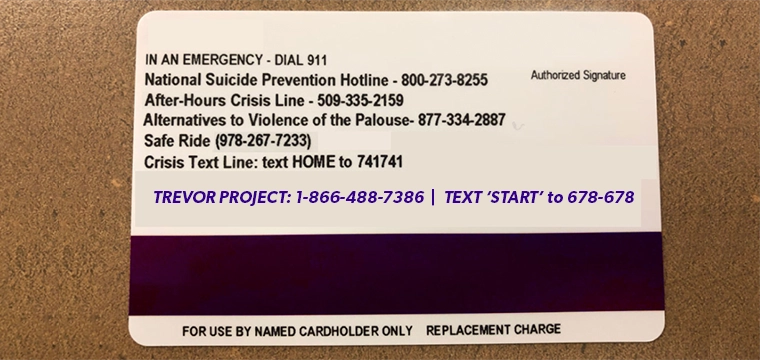Following the Department of Education’s first draft of proposed regulations on financial aid delivery and campus-issued cards, it is clear that there could be major repercussions should all the demands stand.
There is one section in particular that will likely be a point of contention between the Department of Education and the many private sector banking institutions and third-party providers that operate in the campus space.
Section (e) of the document, entitled “Sponsored Accounts,” stipulates how the entire process, from card issuance to federal aid disbursement, should transpire.
The first stipulation under clause would require every university to fully disclose the entire contract that it has in place with a financial institution or third-party provider.
Also, a partnering financial institution “may not send a debit card, prepaid card or access device associated with the account to a student or parent unless the student or parent specifically requests it after providing consent.” This requires double consent it seems, first to receive the account and then again to receive a card associated with the account.
Next, the debit or prepaid card issued to a student “may not bear the institution’s logo or mascot, or that otherwise implies an affiliation with the institution.”
Banks aren’t the only ones who will feel the repercussions. Third-party providers, organizations that contract with universities to provide federal aid disbursement services, are also in the line of fire. Under the newly proposed regulations, institutions “may not provide to the servicer or entity any information about the student or parent until after the student or parent consents affirmatively to open the account.” This will act in direct contradiction to the current model eliminating the service provider’s ability to solicit consent from students and handle the process of letting the student choose their preferred means of delivery.
Another area in which the Department of Education’s prescriptions make a clearly defined stance is with fees, specifically the lack thereof.
In a nutshell, the Department of Education believes students should not incur any cost in opening the financial account or initially receiving the debit card, prepaid card, or access device associated with the account or with maintaining the account. Where things start to get hairy is with the proposed elimination of fees for using the debit card, prepaid card, or access device to conduct “any transaction at any automated teller machine (ATM) located in any State.” Additionally, no overdraft fees may be charged with the accounts that accept title IV funds.
These are just a few of the notable proposed revisions in clause (e) that, if left unchanged, could prove to be insurmountable challenges that render the campus banking partnership ineffective.
The Department of Education’s document can be rather time consuming to read, and sifting through the document’s nomenclature can be equally difficult. CR80News posted the full regulatory document as it relates to Issue 4 - Cash Management, but below is section e., discussed in this article, in its entirety:
“(e) Sponsored account. If an institution located in any State, as defined in 600.2, establishes a process that a student or parent follows to open a financial account, either through a contract with a third-party servicer or through any arrangement with an entity under which any party to the arrangement exercises any control over the financial account into which the student’s title IV, HEA program funds are transferred or deposited, the institution—
(1) Must disclose conspicuously on its website, and otherwise make public, that contract or arrangement in its entirety
(2) Before the student’s or parent’s financial account is opened and before the student or parent may activate a debit card, prepaid card, or access device associated with the account, must—
(i) Inform the student or parent of the terms and conditions of the account; and
(ii) Obtain in writing affirmative consent from the student or parent to open the account;(3) Must review any information that is provided to the student or parent about the account, and the debit card, prepaid card, or access device associated with the account, to ensure that the information is presented to the student in an objective and neutral manner;
(4) May not send a debit card, prepaid card, or access device associated with the account to a student or parent unless the student or parent specifically requests it after providing consent as required in paragraph (e)(2);
(5) May not offer a debit card, prepaid card, or access device associated with the account that bears the institution’s logo or mascot, or that otherwise implies an affiliation with the institution;
(6) May not provide to the servicer or entity any information about the student or parent until after the student or parent consents affirmatively to open the account under paragraph (e)(2);
(7) May not make any claims against the funds in the account without the written permission of the student or parent, except for correcting an error in transferring the funds in accordance with banking protocols;
(8) Must ensure that the student does not incur any cost in—
(i) Opening the financial account or initially receiving the debit card, prepaid card, or access device associated with the account;
(ii) Maintaining the account; or
(iii) Using the debit card, prepaid card, or access device to conduct any transaction at any automated teller machine (ATM) located in any State as defined in 600.2;(9) Must ensure that the debit card, prepaid card, or access device associated with the account can be used nationally;
(10) May not market or portray the financial account, debit card, prepaid card, or access device as a credit card or credit instrument, or subsequently convert the account, card, or device to a credit card or credit instrument;
(11) May not assess the student or parent any overdraft fees if the financial account is overdrawn;
(12) Regardless of the debit card, prepaid card, or access device associated with the financial account, must ensure that—
(i) The provider of the card or device provides the student or parent with pass-through deposit or share insurance;
(ii) The card or device does not have an attached line of credit or loan feature under which repayment from the account is triggered upon the delivery of a Federal payment, including a deposit or transfer of title IV, HEA program funds into the account; and
(iii) The account provides the student or parent with all the consumer protections that apply to a payroll card account under the Electronic Fund Transfers Act, as amended; and(13) Ensure that the financial account is in the student’s or parent’s name, or for a financial account that is a pooled custodial account, the subaccount (or card or device) is in the student’s or parent’s name. The custodial bank account must be established in the name of the institution or the institution’s third party servicer, and must be set up to ensure that any title IV, HEA program funds that become the pooled funds of the custodial account are credited immediately to the student’s or parent’s subaccount (or card or device).”




